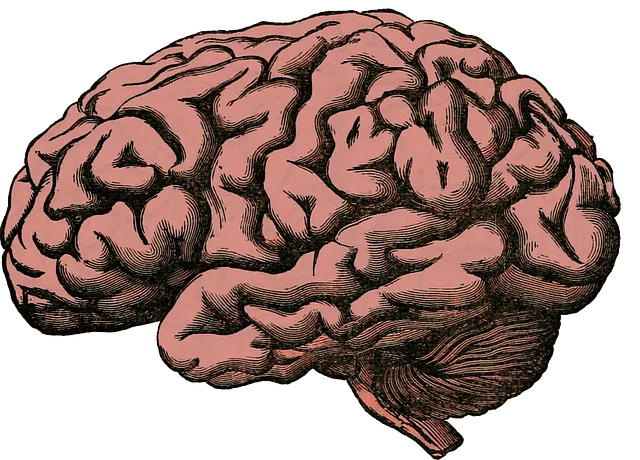The Kaiser Permanente mental health center in Englewood prioritizes cultural competency to enhance patient outcomes. By recognizing diverse cultural backgrounds and tailoring services, they build trust and improve communication, especially in addressing anxiety. Innovative training programs based on Mind Over Matter Principles reduce provider stress and bias, fostering empathy and personalized care. Comprehensive evaluation methods measure the impact of these initiatives, ensuring an inclusive and responsive mental healthcare environment for Englewood communities.
In today’s diverse healthcare landscape, cultural competency is paramount. This training equips providers to offer inclusive, effective care to all patients, regardless of background. The article explores this crucial topic through several lenses. We examine the model programs at Kaiser Permanente Englewood’s mental health center, highlighting successful strategies. Additionally, we discuss evidence-based training methods for bias mitigation and improved patient outcomes. Finally, we delve into evaluation metrics to ensure cultural competency initiatives are effective.
- Understanding Cultural Competency in Healthcare
- Kaiser Permanente Englewood: A Model for Mental Health Care
- Training Strategies to Overcome Bias and Improve Patient Outcomes
- Measuring and Evaluating Cultural Competency Effectiveness
Understanding Cultural Competency in Healthcare

Cultural competency is an essential aspect of healthcare that ensures providers can offer quality care to patients from diverse backgrounds and cultures. It involves understanding and appreciating the unique beliefs, values, and practices that shape individuals’ health experiences and behaviors. At organizations like Kaiser Permanente’s mental health center in Englewood, recognizing cultural differences is vital for building trust and fostering effective communication between healthcare professionals and their communities.
This concept transcends language proficiency; it requires providers to be sensitive to emotional healing processes, especially when addressing issues like anxiety, which can be influenced by cultural norms. By integrating community outreach program implementations that cater to these nuances, healthcare providers can significantly contribute to the overall well-being of diverse populations. This approach not only improves patient outcomes but also enhances access to care, ensuring everyone receives the support they need for their mental health and Anxiety Relief.
Kaiser Permanente Englewood: A Model for Mental Health Care

Kaiser Permanente Englewood stands as a model for mental health care within the healthcare provider cultural competency landscape. This pioneering facility integrates comprehensive psychological services with a deep understanding of diverse patient backgrounds, ensuring equitable access to emotional healing processes. By fostering an inclusive environment and employing effective communication strategies, Kaiser Permanente Englewood addresses burnout prevention while promoting holistic well-being for all its patients.
The center’s success lies in tailoring mental health care to the unique cultural needs of its community, preventing a one-size-fits-all approach. This tailored strategy not only enhances patient satisfaction but also improves outcomes by recognizing and respecting individual differences. Through innovative practices, Kaiser Permanente Englewood sets a standard for cultural competency training, demonstrating that accessible, culturally sensitive mental healthcare can transform lives.
Training Strategies to Overcome Bias and Improve Patient Outcomes

Effective training strategies are crucial for healthcare providers to overcome biases and improve patient outcomes, especially within diverse communities like those served by the Kaiser Permanente mental health center in Englewood. Programs designed around the Mind Over Matter Principles can foster an environment where self-care practices are prioritized, enabling providers to manage stress and avoid burnout. These initiatives should be integrated into Mental Health Education Programs Design, ensuring that medical professionals receive comprehensive training on cultural competency.
By incorporating evidence-based strategies, such as role-playing scenarios and interactive workshops, healthcare staff can enhance their ability to connect with patients from various backgrounds. Such training encourages active listening, empathy, and adaptability, leading to better communication and more personalized care. This, in turn, can reduce biases and improve patient satisfaction, ultimately contributing to positive mental health outcomes.
Measuring and Evaluating Cultural Competency Effectiveness

Effective cultural competency training within healthcare institutions, such as the Kaiser Permanente mental health center in Englewood, relies on robust measurement and evaluation methods to gauge its impact. This process involves assessing both participant knowledge gain and behavioral changes post-training. One way to achieve this is through pre and post-training assessments, allowing for a clear understanding of the program’s effectiveness. These evaluations can include surveys, interviews, or case studies designed to capture participants’ perspectives on cultural sensitivity, self-care practices (for better mental health), and mood management strategies.
Additionally, observing healthcare providers in practice can offer valuable insights. By examining their interactions with diverse patients, researchers can assess the translation of training into real-world applications, focusing on improved communication, empathy, and tailored care. This holistic evaluation ensures that cultural competency initiatives are not only educating professionals but also fostering a more inclusive and responsive mental healthcare environment.
Healthcare provider cultural competency training, as demonstrated by Kaiser Permanente’s innovative practices at their Englewood mental health center, is a game-changer in ensuring equitable patient care. By understanding and addressing biases, healthcare professionals can significantly improve patient outcomes, especially in diverse communities. Training should incorporate practical strategies and be continually evaluated to ensure effectiveness. This comprehensive approach not only respects different cultural backgrounds but also fosters better relationships between patients and providers, ultimately enhancing the overall quality of mental health services.






